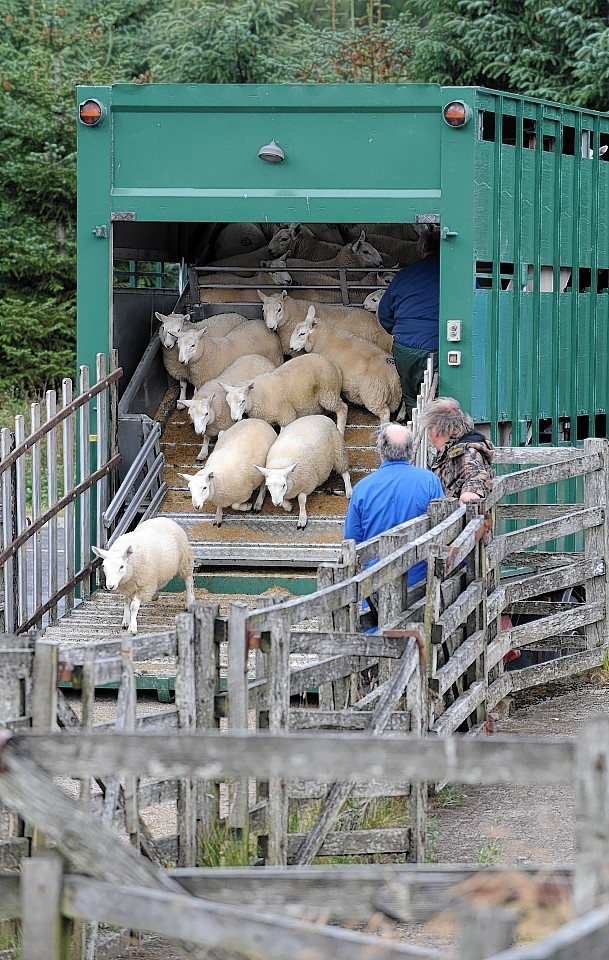North-east arable farmer Andrew Moir is emerging as a strong contender for the top job at NFU Scotland, if a recent hustings event at Thainstone is anything to go by.
Mr Moir, who farms at Thornton Mains, near Laurencekirk, is up against the current two vice-presidents – Allan Bowie and Rob Livesey – for the role of president.
No stranger to top jobs in farming – he is chairman of AgriScot and Ringlink – Mr Moir pledged to ensure a mid-term review of the Cap, push government for a swift review of Cap budgets as soon as possible, and to press the EU to use every tool possible to stabilise markets affected by the Russian trade ban.
Mr Moir, who was the only candidate at Tuesday’s hustings to hand out election pamphlets, said if elected as president he would stand down from his roles at AgriScot and Ringlink. The current vice-presidents also put up a strong case for being promoted to the presidential role.
Mr Bowie, who only has his name in the hat for the president job, said his focus would be getting Cap implementation right and working to encourage more youngsters into the sector.
Mr Livesey, who is also running to keep his current vice-president job if not elected as president, also spoke of Cap implementation but said the focus should be on getting the scheme right rather than ensuring payments are made on December 1.
He spoke passionately about the Beef 2020 package, which he was involved in developing, and said it was important the union pushed the government to keep its promise of delivering convergence money to Scotland.
Three other candidates have put themselves forward for the role of vice-president. They are: Dumfriesshire livestock farmer Andrew McCornick, who currently serves are regional board chairman for Dumfries and Galloway; Borders farmer Kelvin Pate who runs a mixed enterprise near Gifford and previously served as livestock committee chairman from 2007 to 2009; and Kintyre dairy farmer John Smith who currently serves as chairman of the union’s legal and technical committee.
All three spoke of wanting to get Cap implementation right and there is no doubt they could offer something valuable to the union’s top table.
The outcome of the elections will be revealed at the union’s annual meeting next month when all council members cast their vote. The election is decided on by the council members, who in theory are supposed to ask their regional or sectoral members what way they want them to vote.
NFU Scotland isn’t a one man (one woman), one vote organisation so it is crucial all members let their council representatives know who they want in the top jobs.
Rather bizarrely, one election candidate, who shall remain unnamed, said allowing everyone the chance to vote could result in the wrong person being elected. It’s maybe time the union moved into the 21st century and allowed democracy in to its electoral process
